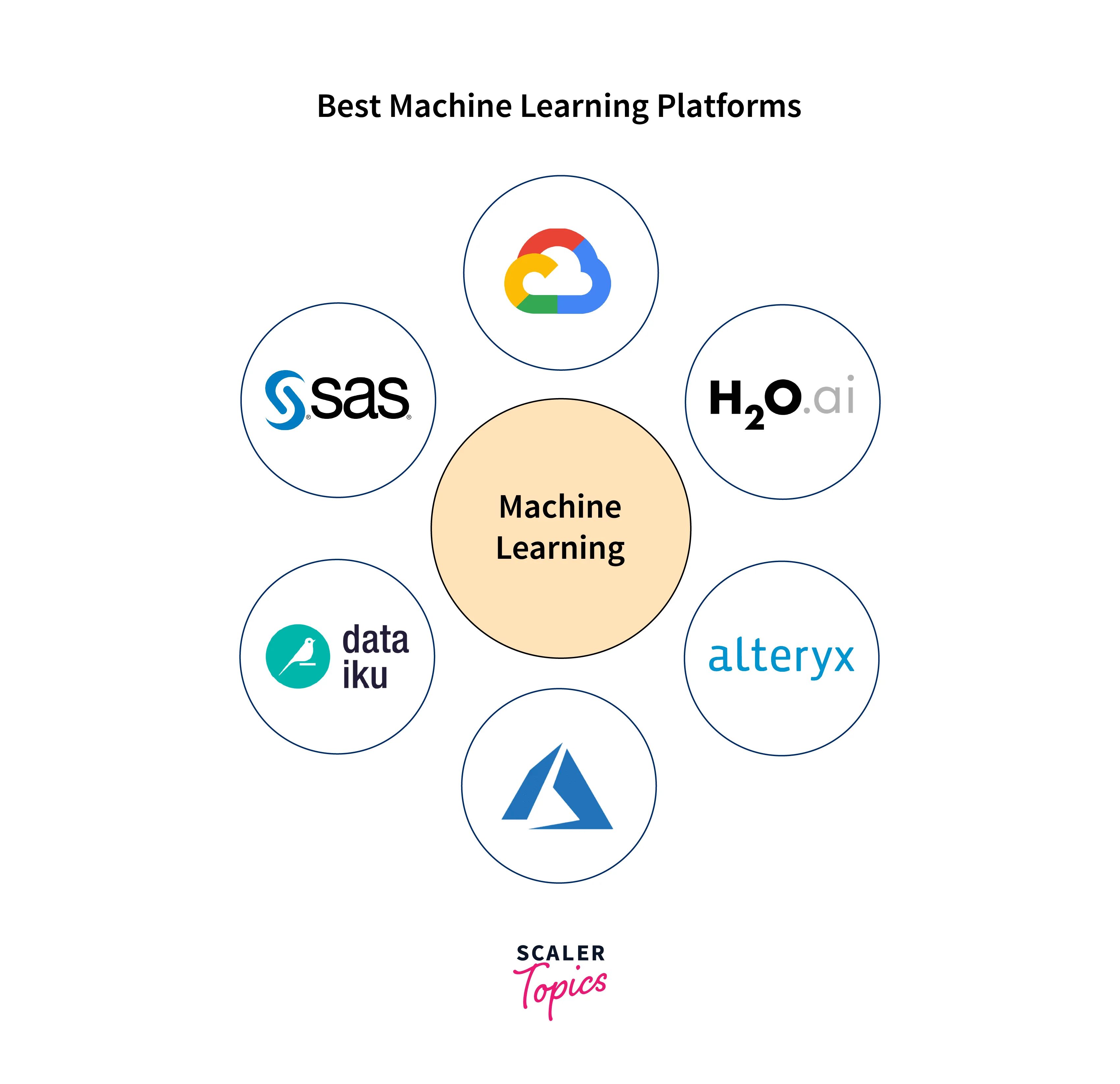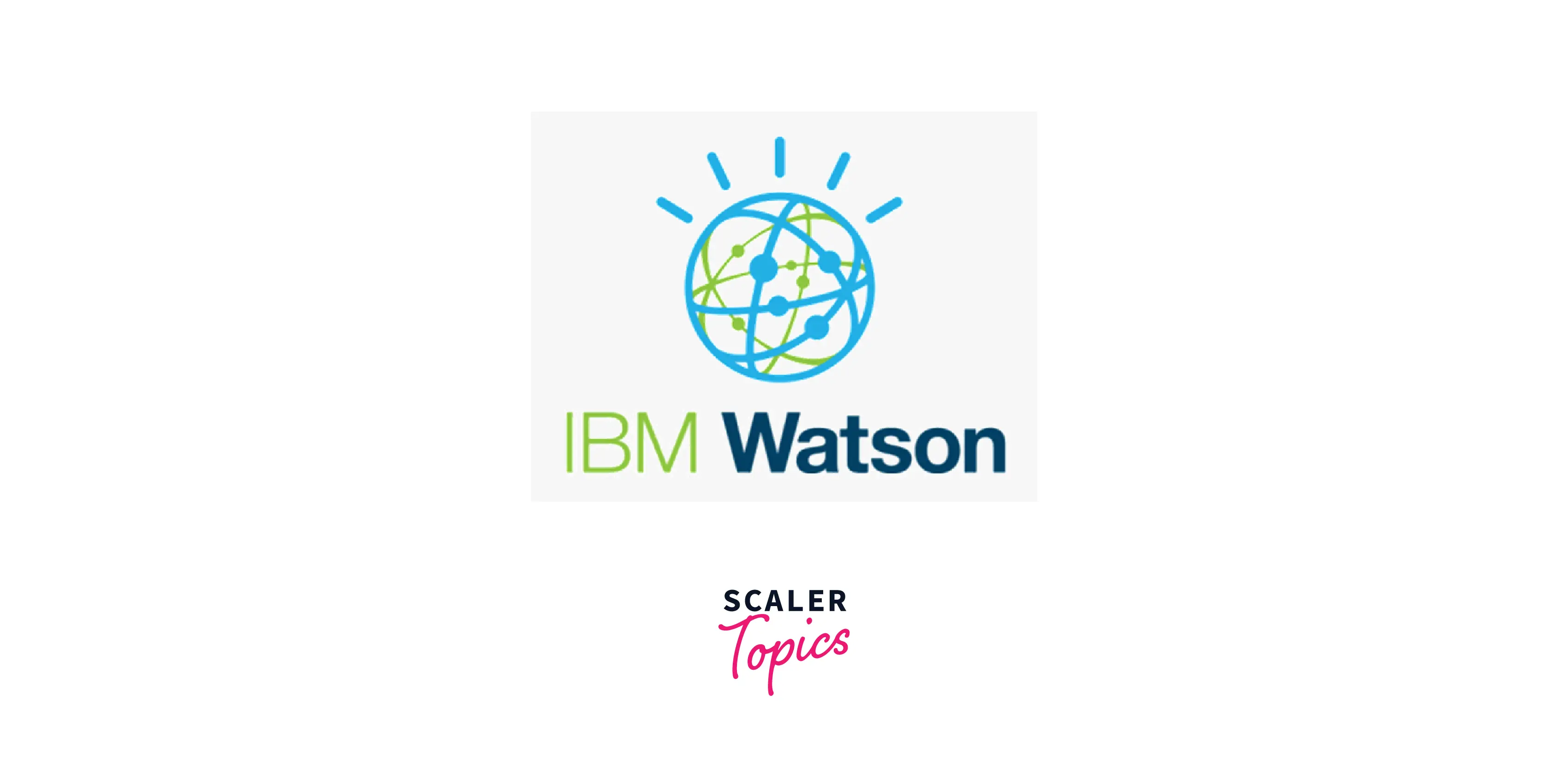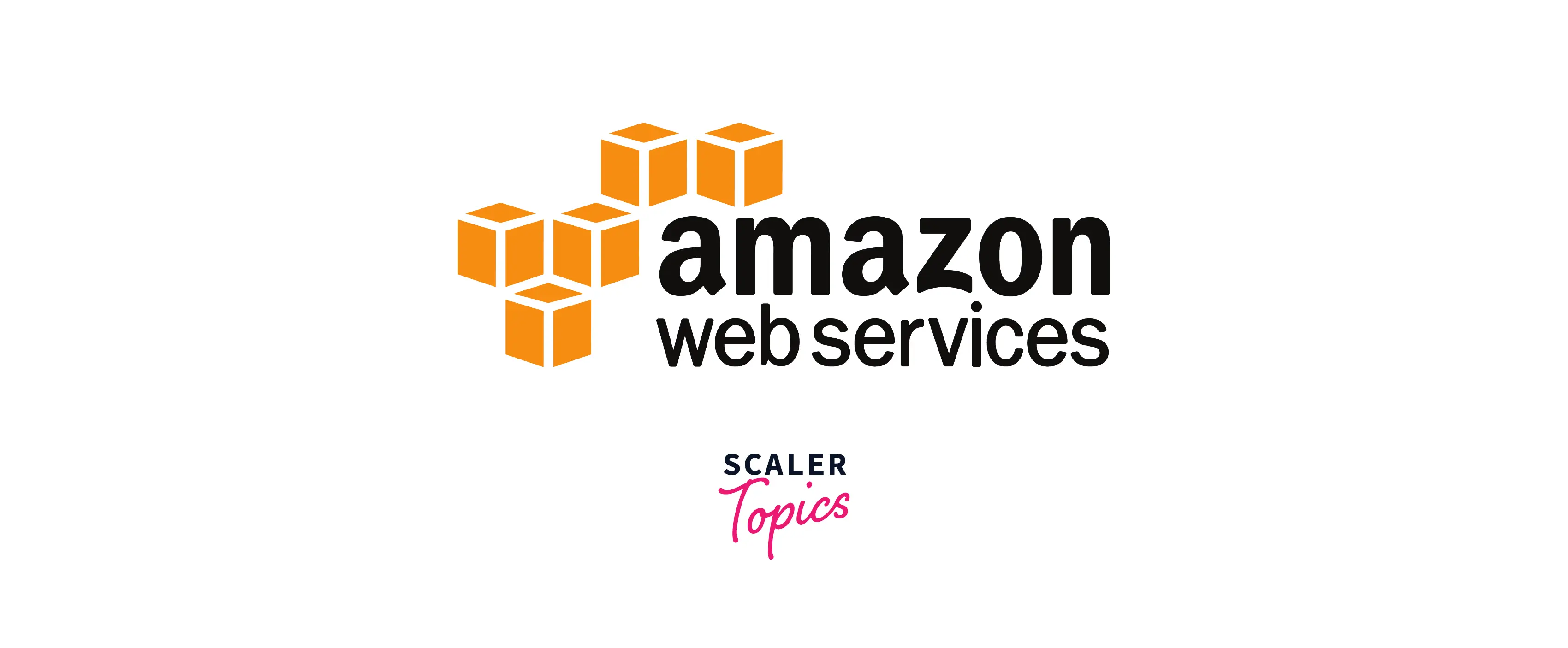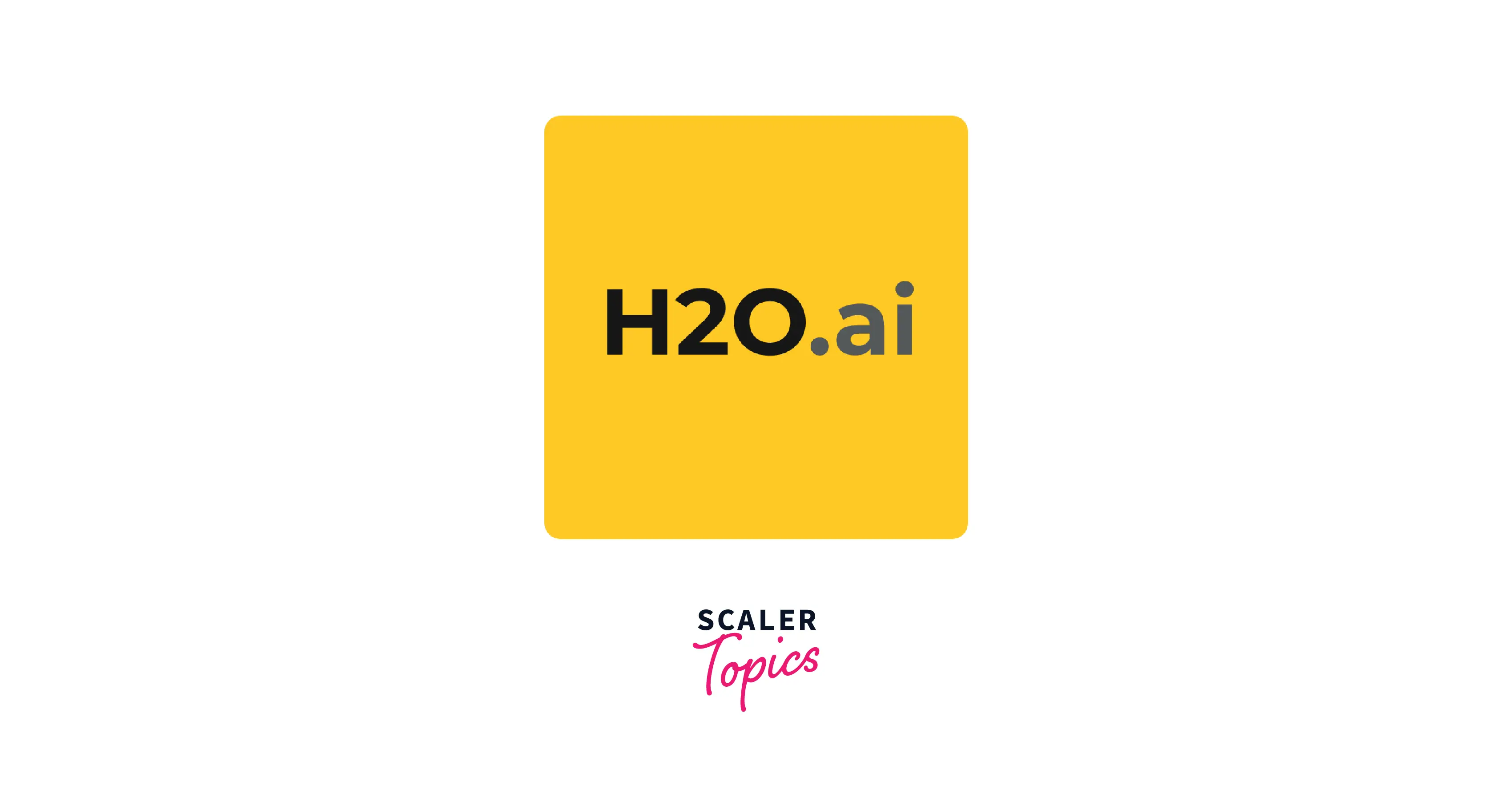Machine Learning Platforms
Overview
The discipline of machine learning is fast expanding. As a result, it is critical to select appropriate machine learning platforms that contribute to the success of constructing models utilizing end-to-end methodologies.
Machine learning platforms give users the tools to create, implement, and enhance machine learning, especially machine learning algorithms.
Introduction

As organizations collect more data, the necessity of using machine learning and other artificial intelligence (AI) technologies to transform data into insights, drive business decisions, and improve goods and services grows. Machine learning platforms and tools integrate sophisticated algorithms with data, allowing you to draw business insights and scale innovative solutions.
Machine learning platforms simplify data operations, accelerate data processing, and enhance associated functionality.
What do We Mean by an ML Platform?
Machine learning platforms are used for automating and accelerating the delivery lifecycle of predictive applications capable of massive data processing via machine learning or linked procedures. Machine learning platforms enable machine learning from start to finish, allowing customers to control the full data lifecycle, from data intake through inference.
Machine learning platforms are classified into two types: cloud and on-premise. Most machine learning systems operate on the cloud, allowing for flexible resource use and eliminating the need for on-site infrastructure. However, some machine learning platforms are hosted on-premises, either at the business site or in a different location that is generally chosen for security or speed reasons.
Different Machine Learning Platforms
Here are some frequently used machine learning platforms in the industry.
1. Microsoft Azure

Machine Learning Studio in Azure is a powerful, easy, browser-based, visual drag-and-drop development environment that requires no code. In only a few clicks, you can get from concept to deployment. It offers SDKs and services for fast preparing data, training, and deploying machine learning models. In addition, it improves productivity and pricing using automotive scaling ciphers and pipelines.
Features:
- Its interface is the Azure Machine Learning Studio, which has a drag-and-drop environment for constructing models.
- It provides programs that operate decision trees, deep neural networks, classification, and regression automatically.
- It only allows large data sets from either service provider to be uploaded to the Azure cloud, not smaller ones.
- It provides standard and free versions with limited functionality.
2. IBM Watson

With many AI technologies, the IBM Watson platform is designed for developers and users. It contains system programs and queries, prediction, and tools for creating workbooks. Furthermore, it enables robust information visualizations aided by drag-and-drop surrounds to construct models. They also provide a variety of APIs for incorporating AI into current apps. Dashboards are used to manage all choices.
Features:
- SPSS Graphical Analytics was used to create the front-end interface.
- IBM Bluemix must be used to store the data and forecasts.
- The enterprise-focused services assist in the development of ML-based apps through the use of API connections.
- They are paid. However, there are also free versions accessible.
3. Amazon Web Services

Amazon Web Services provides ready-made and easily accessible prediction models for any developer, even if they are unfamiliar with data science. With a pay-as-you-go strategy that requires very little investment in hardware or software, this is one of the most straightforward machine-learning platform providers for entrants. Additionally, developers may leverage AWS (Amazon web services) AI toolkits, which include Amazon Lex and Amazon Polly.
Features:
- It takes advantage of the Amazon Machine Learning sideboard and the Amazon Character user interface.
- The data must be stored in an associated AWS account such as S3, Redshift, or RDS.
- It operates on a pay-as-you-go basis, with prices for cardinal batch predictions starting at less than ten cents.
4. Ai-one

Developers may create intelligent assistants that can be quickly deployed on any software application using the Ai-one platform. The tools list contains developer APIs, a document library, and agents for transforming information into rule sets that enable ML and AI structures.
5. Apache PredictionIO

It is an open-source stack for machine learning design that includes an open-source server. Apache PredictionIO is the simplest method to build predictive engines that can handle any machine learning problem. These machine-learning platforms also feature a model gallery and an event server.
6. H2O

H2O.ai is the inventor of the world's top open-source machine learning and artificial intelligence platform, which is trusted by hundreds of thousands of data scientists and drives value in over 18,000 organizations worldwide. This platform was created for programming languages such as Python, R, and Java.
7. Google Cloud

Google Cloud provides several AI and Machine Learning products, including AI Hub is a repository of plug-and-play artificial intelligence components that encourages experimentation and collaboration.
Features:
- AI building components for app developers to incorporate sight, language, dialogue, and structured data.
- AI Platform, a code-based scientific development environment that enables ML developers and data scientists to efficiently move projects from concept to implementation, among other AI tools.
- Another outstanding advantage is the ability to work as a team using Google Colab throughout the research phase of any project. In addition, this tool enables developers to work on an established web environment and share experiments collectively.
8. SAS

You'll learn the true potential of SAS to explore, analyze, and display data, whether you're a data scientist, business analyst, statistician, or forecaster.
SAS Visual Analytics and SAS Visual Data Miner & Machine Learning are two excellent tools for machine learning development, visual data mining, and visual statistics. In addition, SAS's cloud-ready design makes analytics more accessible to a larger audience.
9. Mathworks

MathWork's most well-known products for designing AI models and AI-driven systems are MATLAB and Simulink. MathWork concentrated on creating these technologies to become specialists in high-end financial and data engineering settings. As a result, MathWorks now gives customers constant visibility in the broad advanced analytics sector. Furthermore, its prominent presence in the data science and machine learning software industry has resulted in a large user base.
10. Dataiku

This New York City-based company provides a Data Science Studio focusing on cross-discipline collaboration and ease of use, allowing users to begin Machine Learning projects quickly. In addition, cooperation and open-source support play an essential role in their product roadmap. Their goal is to power both self-service analytics and the production deployment of ML models.
11. Alteryx Analytics

Leading the self-service data analytics revolution with a platform capable of discovering, preparing, and analyzing your data, then deploying and sharing analytics at scale for deeper insights quicker than you ever imagined possible.
Alteryx is a frontrunner in Gartner's Magic Quadrant. Among its benefits is the ability to develop models in a single process. However, Alteryx Analytics' product ambition is more than just a platform; it intends to help enterprises create a data analytics culture through events, documentation, and a flourishing community.
12. Algorithmia

The AI Layer separates your models from infrastructure, allowing you to focus on what is essential as you expand.
This startup offers AI Layer, a versatile and resilient platform for maintaining and deploying machine learning models at scale. It contains tools for automating DevOps for ML, collaborating across internal teams, and optimizing hardware consumption. It also seeks to handle typical ML process difficulties such as autoscaling, documenting ML portfolios, and locating the best ML models.
Conclusion
- Machine learning platforms are services or solutions that enable you to automate or outsource some aspects of your data science job.
- Machine learning platforms can either be on-site or cloud-based, and each has its use.
- AWS, Azure, and Google Cloud are the most renowned machine learning platforms.
